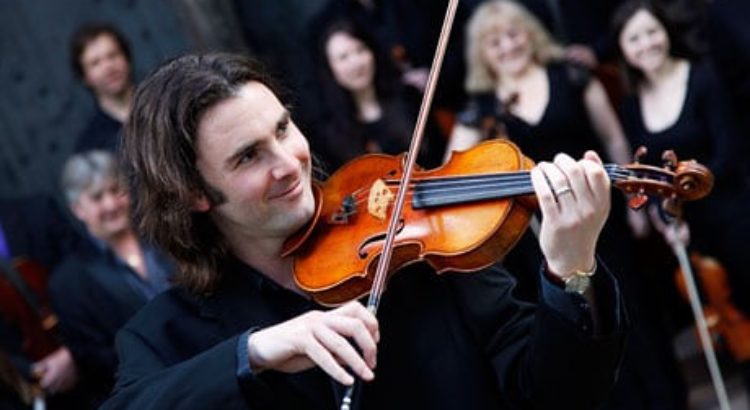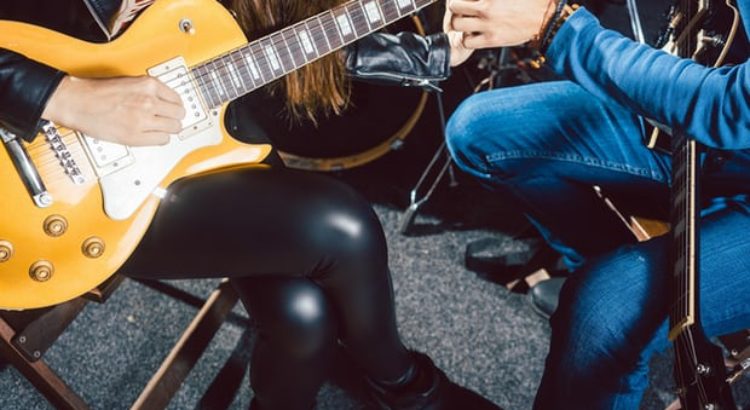England/ 23.04.2018/ From: www.theguardian.com.
I started learning violin when I was around four years old. I’m a fifth generation violinist in my family. So playing the violin is part of my family history and I felt that keenly even as a little boy.
My own violin teaching was really outside of school. My dad found me an incredible teacher, Warren Jacobs, an Australian who taught mainly in Edinburgh and Glasgow. I do remember loving playing the violin from a very early age.
Even when I was a small boy I wanted to play music with other people. The National Children’s Orchestra (NCO) had a massive impact on my life and it’s so amazing to see it have the same affect on children now. Children aged eight to 14 are auditioned to find the finest musical talent in the UK. They come together at residential courses three times a year, at Easter, Christmas and the summer. As a boy it was so incredible to find and play with people who were as driven and passionate as I was.
I didn’t set out to become a teacher, I just knew I wanted to play the violin. I read music at Cambridge and then the Birmingham Conservatoir studies in violin.
I’ve never been taught how to teach, it’s something that has evolved over time. I always did a lot of informal teaching, but by the time I was 21, teaching violin had become a big part of my life.
It’s quite normal for classical musicians to teach alongside playing, as a way to make some money. When I’d finished my post grad at Birmingham I seriously needed to think about how I would make a living. I was a professional violin player but didn’t have a full time salary. More formal teaching was the obvious thing, but I found I just enjoyed it so much. A lot of performers teach because they have to. For me it was always very different, it was a pleasure not just a necessity.
Some of the greatest violin teachers I’ve met have spoken about how much we learn about ourselves as a player from teaching and that’s certainly true for me. I’ve always felt my teaching improves my performing and helps me to have an intelligent approach to my own practice. I literally don’t have any time to waste so I’ve got to get things done efficiently.
To begin with I taught privately. I’ve started children off learning to play the violin at the age of four. That’s something I really enjoy, to be there right at the start rather than ‘rescuing’ someone who may have been taught less well. It’s incredible when you see talent at a really early age, but at the same time less naturally talented students can do really well with good teaching
As my interest in teaching grew and I began to get regular freelance work with all different types of schools. I taught violin at Lichfield Cathedral school one or two days a week and worked on a fantastic scheme with Birmingham City Council music service where I taught group violin lessons in a number of state schools. There was even funding for one-to-one teaching if you came across a real talent. All the while I was performing all over the country.
Then I got married and my wife got tired of my driving all over the country all the time. So when the head of strings job at Uppingham School came up, I applied. Of course I’d had interviews for my freelance music teaching but this was a really serious process. I was so delighted to get the job three years ago and I’m enjoying it so much.
Before I was mainly teaching one-to-one violin but now I’ve got a proper job I’m also involved in organising musical events and of course I’m involved in pastoral care of our students as well.
My tip on keeping students inspired is to give them the responsibility for their music. I show them how to make their instrument sound as good as possible as early as possible. The target they have is to focus on making a brilliant sound and I try to empower them to teach themselves – to me that is the definition of being a successful music teacher.
It’s really wonderful to be involved in music teaching. I so enjoy watching young musicians and young people develop. I think every child should have the opportunity to learn an instrument – and there have been countless studies on how young people who are involved in classical music do better in their life and learning especially if they are involved in orchestras and can develop all that fantastic teamwork and ability to trust and interact with each other.
The National Children’s Orchestra (NCO) has remained a large force in my life. I now teach and conduct courses as well as auditioning for them in my spare time. It’s a real focus to go into state schools and identify the really talented children and we work closely with music hubs and services to do that. There are members of the NCO from all backgrounds – if we find the talent funding is there to make it happen. Last year we had a record number of more than a thousand kids auditioning, and there are 600 to 700 members of the orchestra, although not all of them play in the national concerts. So if music teachers reading this have discovered real talent in their students then they should get in touch with the NCO.
I’m so happy teaching and performing. I want to do more of the same and want to keep improving myself. That’s very much a musician’s mindset.
Alex Laing is head of strings at Uppingham school in Leicestershire. The National Children’s Orchestras of Great Britain are celebrating their 35th anniversary this year with a series of concerts including the Main Orchestra at the Barbican on Saturday 27 July.
From: https://www.theguardian.com/teacher-network/teacher-blog/2013/jul/21/teaching-music-musician-inspire-students










 Users Today : 48
Users Today : 48 Total Users : 35460179
Total Users : 35460179 Views Today : 65
Views Today : 65 Total views : 3418848
Total views : 3418848